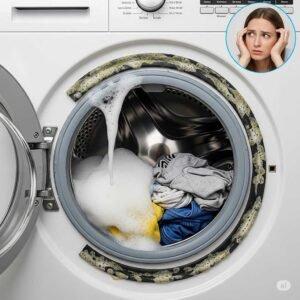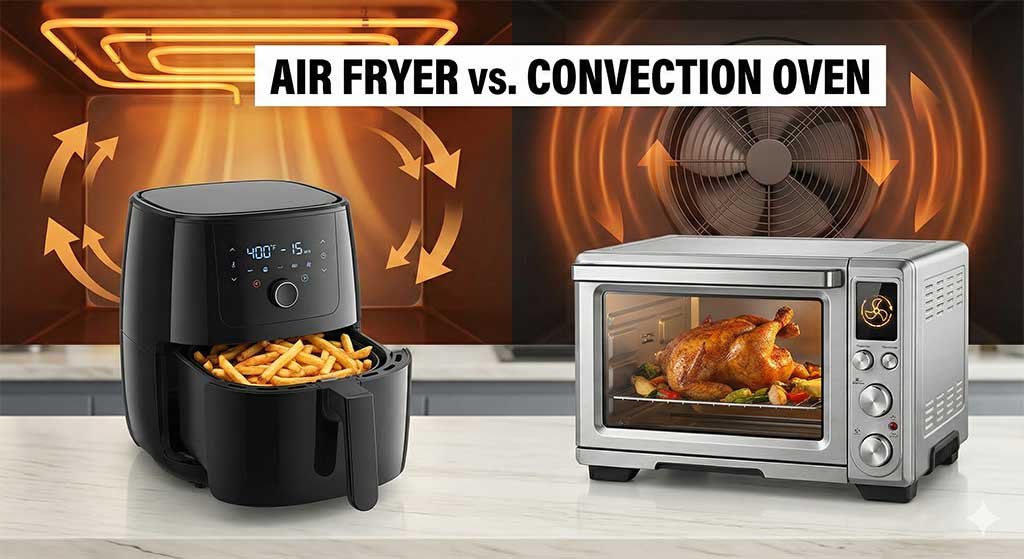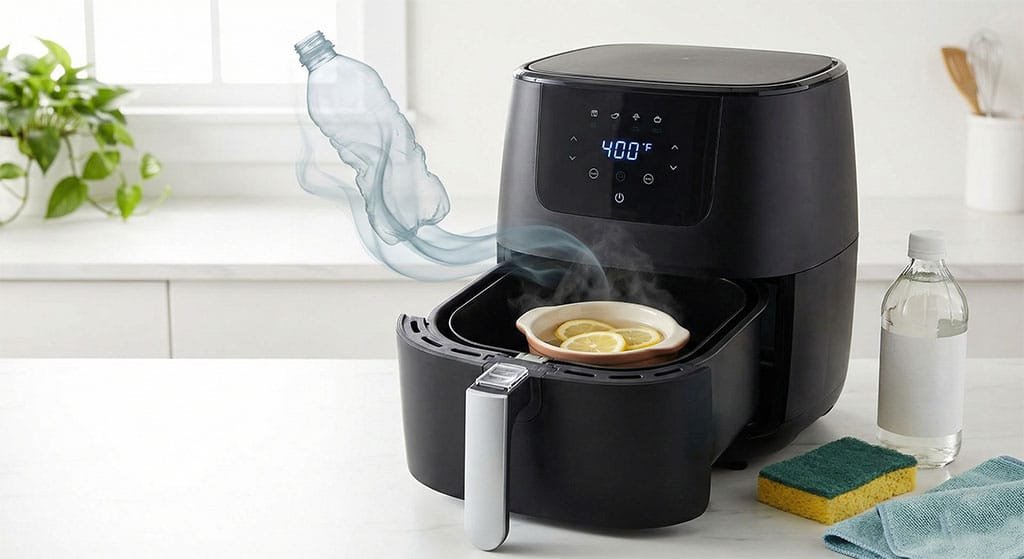While high-efficiency (HE) washers excel in water and energy savings, they often present unique challenges. Common problems with high-efficiency washers include lingering musty odors from mold, excessive suds due to improper detergent use, longer wash cycles, and issues with unbalanced loads causing noisy operation. Understanding these quirks and implementing specific maintenance routines is crucial for optimal performance and user satisfaction.
Are you one of the many homeowners who embraced the promise of lower utility bills and eco-friendly cleaning with a high-efficiency washer, only to find yourself scratching your head at some unexpected quirks? You’re not alone. While HE washers offer undeniable benefits, they also come with their own set of challenges that can leave you wondering if you made the right choice. Let’s delve into the common problems with high-efficiency washers and how you can tackle them head-on, ensuring your laundry experience is as efficient and effective as advertised.

Table of Contents
The Suds Saga: Too Much Detergent is Your Enemy
One of the most frequent issues HE washer owners encounter is excessive suds. Unlike traditional agitator washers, HE machines use significantly less water. This means that using conventional detergent, or even too much HE-specific detergent, can lead to an oversudsing nightmare.
- Why it happens: High suds levels can confuse the washer’s sensors, leading to extended rinse cycles, incomplete draining, and even error codes. The machine might add more water to combat the suds, negating the very water-saving benefits you bought it for.
- The solution: Always use HE-specific detergent, clearly labeled for high-efficiency machines. These detergents are formulated to produce fewer suds. And even then, use the recommended amount – often far less than you’d think. Many HE washers have a “Max Fill” line for detergent; stick to it. If you have soft water, you might even need to use less than the manufacturer’s recommendation.
The Lingering Odor: A Musty Mystery
Have you noticed a persistent, unpleasant smell emanating from your HE washer? This is a widespread complaint, particularly with front-loading models. The culprit? Mold and mildew growth.
- Why it happens: HE washers, especially front-loaders, have a tightly sealed door to prevent leaks. This design, combined with the lower water usage, can create a warm, damp environment inside the drum and around the gasket – an ideal breeding ground for mold and mildew. Residual detergent and fabric softener can also contribute to this buildup.
- The solution:
- Leave the door ajar: After each wash cycle, leave the washer door slightly open to allow the interior to air out and dry completely.
- Wipe down the gasket: Regularly wipe down the rubber gasket around the door with a cloth dampened with a mild detergent solution or a 1:1 vinegar and water solution. Pay close attention to any nooks and crannies where moisture can hide.
- Run a cleaning cycle: Most HE washers have a dedicated “Tub Clean” or “Self-Clean” cycle. Run this cycle regularly, typically once a month, using a washing machine cleaner, bleach, or white vinegar.
- Clean the dispenser: Don’t forget to remove and clean the detergent and fabric softener dispenser drawers. These can accumulate residue that contributes to odors.
- Use less fabric softener: Fabric softener can leave a residue that promotes mold growth. Consider using white vinegar as a natural fabric softener alternative.
Extended Wash Times: Patience is a Virtue (or a Problem)
Are your laundry cycles taking an eternity? This is another common frustration with high-efficiency washers. What seems like a bug is often a feature, albeit one that can test your patience.
- Why it happens: HE washers use sensors to determine load size and soil level, adjusting water levels and cycle times accordingly. They also employ a series of sprays and tumbles rather than full submersion, which can take longer to achieve thorough cleaning with less water. Additionally, the spin cycles are often longer and faster to extract more water, reducing drying time.
- The solution:
- Understand the cycles: Familiarize yourself with your washer’s different cycles and their intended uses. Some cycles, like “heavy duty” or “sanitized,” will naturally be longer.
- Don’t overload: Overloading your HE washer can prevent proper tumbling and rinsing, leading to extended cycle times as the machine tries to compensate.
- Check for error codes: If cycles are excessively long and you suspect a malfunction, consult your owner’s manual for any error codes displayed on the control panel.
- Pre-treat heavily soiled items: For extremely dirty laundry, pre-treating stains can reduce the need for extended wash cycles.
Unbalanced Load: Shakes, Rattles, and Rolls
If your HE washer is dancing across the laundry room during the spin cycle, you’re likely dealing with an unbalanced load. This isn’t just annoying; it can damage your machine.
- Why it happens: HE washers spin at incredibly high speeds to extract water efficiently. If the weight of the clothes isn’t evenly distributed in the drum, the machine can vibrate excessively, leading to loud banging noises and even “walking.” Items like large towels, sheets, or a single heavy item can easily cause an imbalance.
- The solution:
- Distribute laundry evenly: When loading your washer, distribute items loosely and evenly around the drum. Avoid wadding up large items.
- Mix load types: Don’t wash only heavy items together. Mix smaller items with larger ones to help balance the load.
- Check the leveling feet: Ensure your washer is perfectly level. Adjust the leveling feet if necessary. An unlevel machine is much more prone to vibrating.
- Reduce load size: If you consistently experience imbalances with large loads, try washing smaller loads.
Inadequate Cleaning: Are Your Clothes Really Clean?
Some users report that their clothes don’t seem as clean after washing in an HE machine, or that stubborn stains remain.
- Why it happens: This can be due to a combination of factors:
- Incorrect detergent usage: As mentioned, too much or the wrong type of detergent can hinder effective cleaning.
- Overloading: An overloaded machine doesn’t allow clothes to tumble freely, preventing proper water and detergent penetration.
- Hard water: Hard water can reduce the effectiveness of detergents, leaving mineral deposits on clothes.
- Not enough water: While HE washers use less water, there’s a fine line. If the water level is consistently too low for the load size, cleaning efficiency suffers.
- The solution:
- Review detergent usage: Double-check you’re using HE detergent in the correct amount.
- Don’t overload: Give your clothes room to move.
- Consider a water softener: If you have very hard water, a whole-house water softener or a laundry-specific additive can improve cleaning.
- Pre-treat stains: Always pre-treat stubborn stains before washing.
- Select appropriate cycles: Use more intensive cycles for heavily soiled items.
Lint and Residue: The Annoying Leftovers
Finding lint, undissolved detergent, or white residue on your freshly washed clothes can be incredibly frustrating.
- Why it happens:
- Too much detergent: This can lead to residue that doesn’t rinse away completely.
- Cold water washing: Some detergents don’t dissolve as effectively in cold water.
- Overloading: Just like with cleaning, overcrowding prevents proper rinsing.
- Not cleaning the filter: Many HE washers have a pump filter that can get clogged with lint and debris, affecting draining and rinsing.
- The solution:
- Reduce detergent: Use less detergent, especially if you have soft water.
- Dissolve detergent: If using powder detergent, try dissolving it in a cup of warm water before adding it to the dispenser.
- Wash in warm water: For heavily soiled items or if residue is a consistent issue, consider washing in warm water.
- Don’t overload: Ensure there’s enough space for clothes to move and rinse freely.
- Clean the pump filter: Refer to your owner’s manual for the location of the pump filter (often on the lower front of the machine). Clean it regularly – every few months or more often if you have pets.
HE Washer Differences: A Quick Comparison
To better illustrate some of the fundamental differences that contribute to these problems, let’s look at a brief comparison.
Feature | Traditional Top-Loader (Agitator) | High-Efficiency Top-Loader (Impeller) | High-Efficiency Front-Loader |
Water Usage | High | Low | Very Low |
Detergent | Any | HE-specific | HE-specific |
Cleaning Action | Agitation (Clothes submerged) | Tumbling (Clothes rub together) | Tumbling (Clothes drop/tumble) |
Spin Speed | Moderate | High | Very High |
Cycle Length | Shorter | Longer | Longer |
Door Seal | N/A | N/A | Essential, requires cleaning |
Mold/Mildew Risk | Low | Low | Moderate to High |
Maintain Your HE Washer for Optimal Performance
Preventing these problems with high-efficiency washers often comes down to proper maintenance and understanding how these machines operate.
- Read your manual: Seriously! Your owner’s manual is a treasure trove of information specific to your model, including recommended detergent amounts, cleaning cycles, and troubleshooting tips.
- Regular cleaning: This can’t be stressed enough. Consistent cleaning of the gasket, dispenser, and tub will prevent most odor and residue issues.
- Proper loading: Don’t just throw clothes in. Distribute them evenly to ensure balance and proper cleaning.
- Correct detergent: Always, always use HE detergent. It’s designed for these machines for a reason.
- Address issues promptly: Don’t let a small problem become a big one. If you notice strange noises, odors, or performance issues, address them right away.
FAQ
No, it is strongly advised against. Regular detergent produces too many suds for HE machines, leading to residue, extended cycles, and potential machine damage. Always use detergent specifically labeled “HE” or “High Efficiency.”
This is often caused by using too much detergent, especially in hard water, or from fabric softener residue. Try reducing your detergent amount and regularly cleaning your dispenser. Running an extra rinse cycle can also help.
For optimal odor prevention, wipe down the door gasket and leave the door ajar after every wash. Run a dedicated “Tub Clean” or “Self-Clean” cycle at least once a month, or more frequently if you wash heavily soiled items or live in a humid environment.
Loud banging is typically due to an unbalanced load. Try redistributing your clothes evenly in the drum, especially large or heavy items. Also, ensure your washer is perfectly level by checking and adjusting its leveling feet.
Yes, absolutely! While there’s a learning curve and some specific maintenance, HE washers offer significant water and energy savings over their lifespan. Understanding their nuances and following proper usage guidelines will help you overcome common issues and fully reap their benefits.
Bottom Line
While the initial adjustment to a high-efficiency washer might present a few unique problems with high-efficiency washers, these are largely manageable. By understanding the distinct operational methods of HE machines—primarily their lower water usage and specialized detergent needs—you can easily prevent common issues like lingering odors, excessive suds, and unbalanced loads. With simple, consistent maintenance and the correct practices, your HE washer will prove to be an invaluable, energy-saving appliance, ensuring your laundry is consistently clean and fresh.



Leave a Reply